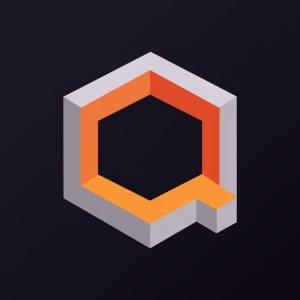IonQ and DESY Research Highlights Quantum’s Potential Benefits for Airport Flight Gate Optimization
Collaboration between Deutsches Elektronen-Synchrotron (DESY) and IonQ lays the foundation for how quantum technologies can be used to solve some of the most complex challenges faced by airports worldwide
IonQ collaborated with researchers from DESY to explore how to better match inbound and outbound flights at airport gates. Specifically, IonQ and DESY were interested in reducing the time travelers spent going from arrival to departure gates and the time planes sat idle at gates before taking off again, while also increasing the number of planes serviced per day at a gate. The novel approach used ‘logarithmic-linear encoding’ to execute flight-gate optimization algorithms on IonQ Aria. In an illustrative example, the team showed how to best cycle nine flights through four gates (up to 36 variables in total) on IonQ Aria. IonQ expects to run future algorithms on IonQ Forte and IonQ Tempo, processing equations sufficient enough to cover the optimization needs of a local European airport.
“The results of our work with DESY are indicative of the real-world value quantum computers can deliver when addressing optimization problems that factor dozens of variable scenarios,” said Peter Chapman, CEO and President of IonQ. “Optimization problems are ubiquitous across all industries, including manufacturing, logistics, finance, pharma, and more. Quantum computing presents a huge opportunity for businesses to innovate across this problem space and remain at the forefront of innovation, tackling problems once deemed unsolvable.”
"We are pleased by the initial results we’re seeing in running quadratic assignment problems across IonQ’s quantum hardware and our collaboration with the IonQ team,” said Dr. Karl Jansen, the head of the Center for Quantum Technology and Applications (CQTA) at DESY. "The learnings gathered here can easily apply to other research and industries where the presence of multiple variables creates too complex of a problem for classical systems to handle."
A preprint explaining IonQ and DESY’s research is available here, with the final report expected to be published in the coming months, and a summary of these results is available on IonQ’s blog here.
These research results mark the latest effort by IonQ to support the development of quantum applications for the airline industry. In 2022, IonQ and Airbus partnered on a project to develop smarter algorithms based on quantum computers to achieve cost savings due to more efficient cargo loading and distribution. Additionally, Hyundai Motors and Thompson Machinery have partnered with IonQ to develop quantum applications for use cases like image recognition in autonomous vehicles and predictive maintenance for construction machinery.
To learn more about how you can get started on an IonQ system today, please contact us directly at: https://ionq.com/get-ready.
About IonQ
IonQ, Inc. is a leader in quantum computing that delivers high-performance systems capable of solving the world’s largest and most complex commercial and research use cases. IonQ’s current generation quantum computer, IonQ Forte, is the latest in a line of cutting-edge systems, boasting 36 algorithmic qubits. The company’s innovative technology and rapid growth were recognized in Fast Company’s 2023 Next Big Things in Tech List and Deloitte’s 2023 Technology Fast 500™ List, respectively. Available through all major cloud providers, IonQ is making quantum computing more accessible and impactful than ever before. Learn more at IonQ.com.
About DESY
DESY is one of the world’s leading accelerator centers. Researchers use the large-scale facilities at DESY to explore the microcosm in all its variety – from the interactions of tiny elementary particles and the behavior of new types of nanomaterials to biomolecular processes that are essential to life. The accelerators and detectors that DESY develops and builds are unique research tools. The facilities generate the world’s most intense X-ray light, accelerate particles to record energies and open completely new windows onto the universe.
That makes DESY not only a magnet for more than 3000 guest researchers from over 40 countries every year, but also a coveted partner for national and international cooperations. Committed young researchers find an exciting interdisciplinary setting at DESY. The research center offers specialized training for a large number of professions. DESY cooperates with industry and business to promote new technologies that will benefit society and encourage innovations. This also benefits the metropolitan regions of the two DESY locations,
IonQ Forward-Looking Statements
This press release contains certain forward-looking statements within the meaning of Section 27A of the Securities Act of 1933, as amended, and Section 21E of the Securities Exchange Act of 1934, as amended. Some of the forward-looking statements can be identified by the use of forward-looking words. Statements that are not historical in nature, including the words “expect,” “will,” and other similar expressions are intended to identify forward-looking statements. These statements include those related to: the company’s technology driving commercial advantage in the future; the applicability of IonQ’s quantum computing offerings to multiple use cases; access to IonQ’s quantum computers; the capabilities, scalability, and reliability of IonQ’s quantum computing offerings; the opportunity to test and optimize novel quantum-enhanced algorithms for computational challenges on IonQ’s quantum computers; the accuracy of quantum algorithms run on IonQ’s quantum computers; and the problems that can be solved by IonQ’s quantum computers. Forward-looking statements are predictions, projections and other statements about future events that are based on current expectations and assumptions and, as a result, are subject to risks and uncertainties. Many factors could cause actual future events to differ materially from the forward-looking statements in this press release, including but not limited to: changes in the competitive industries in which IonQ operates, including development of competing technologies; changes in laws and regulations affecting IonQ’s business; IonQ’s ability to implement its business plans, forecasts and other expectations, identify and realize partnerships and opportunities, and to engage new and existing customers. You should carefully consider the foregoing factors and the other risks and uncertainties disclosed in the Company’s filings, including but not limited to those described in the “Risk Factors” section of IonQ’s most recent Quarterly Report on Form 10-Q and other documents filed by IonQ from time to time with the Securities and Exchange Commission. These filings identify and address other important risks and uncertainties that could cause actual events and results to differ materially from those contained in the forward-looking statements. Forward-looking statements speak only as of the date they are made. Readers are cautioned not to put undue reliance on forward-looking statements, and IonQ assumes no obligation and does not intend to update or revise these forward-looking statements, whether as a result of new information, future events, or otherwise. IonQ does not give any assurance that it will achieve its expectations.
View source version on businesswire.com: https://www.businesswire.com/news/home/20240314520832/en/
IonQ Media contact:
Tyler Ogoshi
press@ionq.com
IonQ Investor Contact:
investors@ionq.co
Source: IonQ







